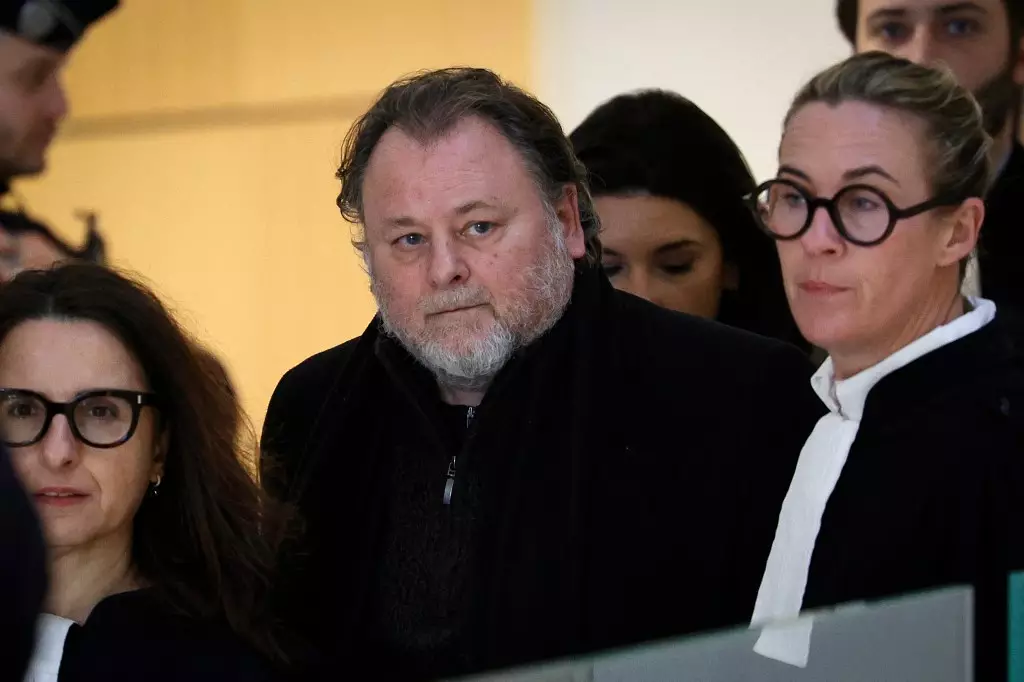The legal battle involving French director Christophe Ruggia and actress Adèle Haenel has become a significant moment in the ongoing #MeToo movement, particularly within the film industry in France. Ruggia was sentenced to two years of house arrest with an electronic bracelet, along with an additional two years suspended, a verdict delivered following a trial that garnered widespread attention. This was not just any trial; it marked a pivotal moment in the landscape of French cinema where allegations of sexual misconduct have often been swept under the rug.
The accusations brought forth by Haenel span a three-year period, originating with an incident that took place when she was only 12 years old during the filming of “The Devils.” Ruggia, aged 36 at the time, was accused of sexual assault and molestation that allegedly occurred during the film’s production and its subsequent promotional activities. Six years have elapsed since Haenel courageously decided to speak out against Ruggia in a 2019 interview with the investigative outlet Mediapart, shining a light on her traumatic experiences in an industry that historically has been less than accommodating to survivors of such incidents.
During the two-day trial, the atmosphere was charged with emotion and tension. The stark contrast between the testimonies provided by Haenel and Ruggia revealed much about the dynamics of power and gender in the film industry. Ruggia maintained his innocence, attributing Haenel’s testimony to retribution for not casting her in a sequel to “The Devils.” This defense, however, seemed to fall flat and was dismissed outright by Haenel’s legal representation.
A noteworthy moment occurred during Ruggia’s testimony when Haenel, unable to contain her frustration, shouted, “Shut your mouth!” and left the courtroom. This dramatic display underscored not only the emotional toll that the trial took on Haenel but also highlighted the larger issue of how narratives of victimization are often contested in public arenas. The courtroom became a microcosm of the broader societal struggle against the normalization of sexual misconduct.
Despite the significant implications of Haenel’s testimony for the film industry, she initially faced a stark lack of support from her peers when she first went public. The cultural ambiance surrounding allegations of sexual violence in France had not yet created a palpable environment for conversation and clarity about these issues. This was starkly illustrated just weeks after Haenel’s revelations, when Roman Polanski won the César Award for Best Director despite ongoing allegations against him.
Such events served as a poignant reminder of the resistance to accountability faced by many in the industry. Feminist activists made their voices heard, protesting Polanski’s recognition and revealing the deep-seated systemic issues prevalent in French cinema. Changes have been made since then, with renewed calls for accountability. The César Academy instituted rules that disqualify professionals under investigation for sexual violence from nomination, although they can still be nominated—suggesting a complex balancing act between recognizing merit and addressing misconduct.
Haenel, disillusioned by industry complacency, announced in an open letter her departure from the film world. This act of leaving was not merely a personal choice; it symbolized a broader repudiation of an entertainment industry that often enables toxic behavior under the guise of artistic merit.
The tide is gradually shifting in France, as highlighted by Judith Godrèche’s recent allegations against notable figures, sparking renewed media attention and discussions surrounding #MeToo. As these powerful accusations come to light, it is becoming increasingly difficult for the industry to remain silent or indifferent.
Haenel’s bravery in coming forward remains a source of inspiration for many. Her journey and the resulting legal proceedings signify not just an individual case but a growing cultural revolution against the normalization of sexual violence in arts and entertainment.
The Ruggia trial represents a critical juncture for France, highlighting both the progress made in addressing sexual violence and the challenges that still lie ahead. It should serve as a wake-up call for the film industry, demanding a reevaluation of its values and commitments to creating a safer space for all artists and creators. The changes in legislation and social attitudes that follow will signal whether the momentum of #MeToo can be sustained and to what extent France is ready to hold its cultural icons accountable for their actions.

